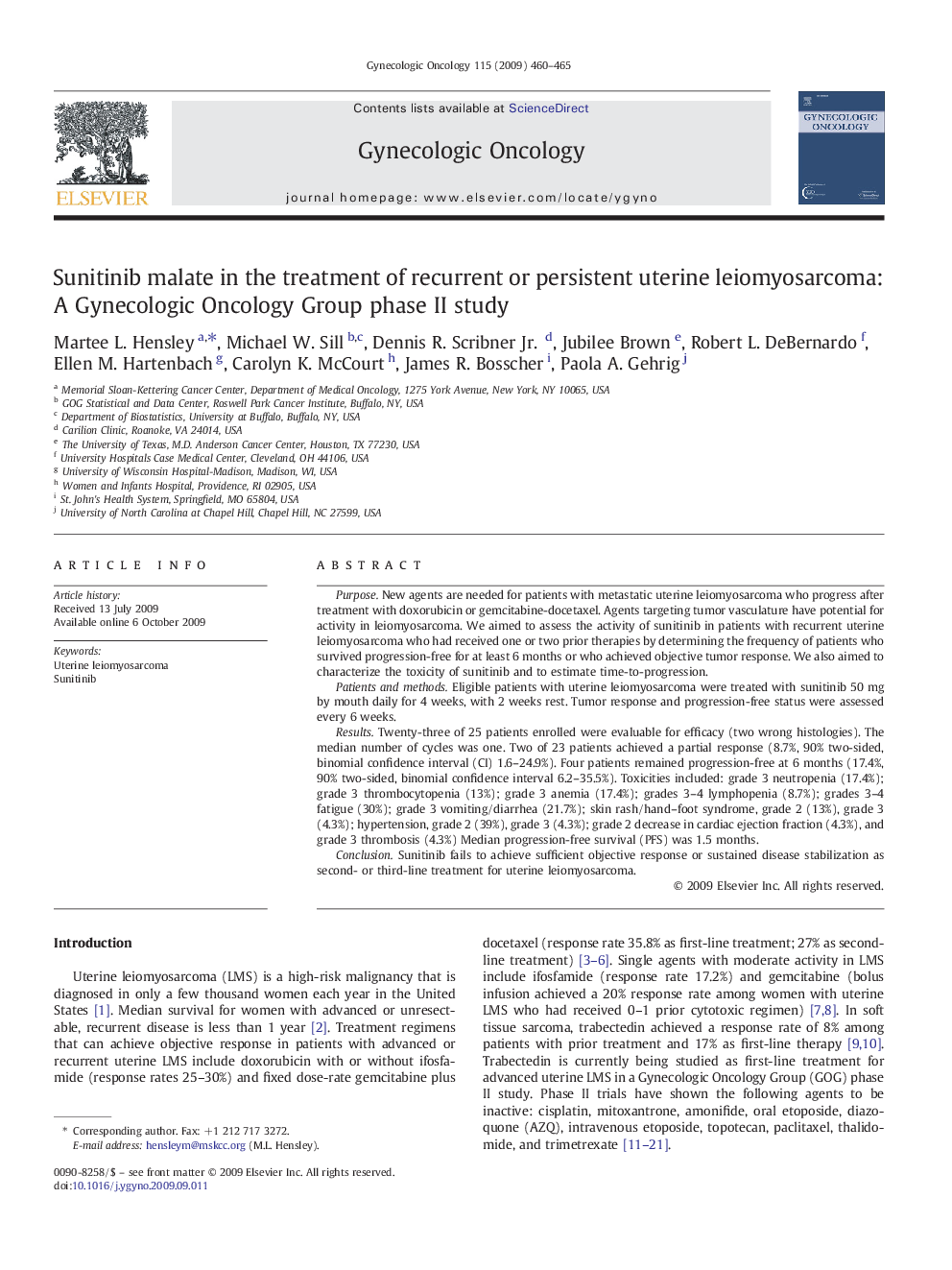| Article ID | Journal | Published Year | Pages | File Type |
|---|---|---|---|---|
| 3943261 | Gynecologic Oncology | 2009 | 6 Pages |
PurposeNew agents are needed for patients with metastatic uterine leiomyosarcoma who progress after treatment with doxorubicin or gemcitabine-docetaxel. Agents targeting tumor vasculature have potential for activity in leiomyosarcoma. We aimed to assess the activity of sunitinib in patients with recurrent uterine leiomyosarcoma who had received one or two prior therapies by determining the frequency of patients who survived progression-free for at least 6 months or who achieved objective tumor response. We also aimed to characterize the toxicity of sunitinib and to estimate time-to-progression.Patients and methodsEligible patients with uterine leiomyosarcoma were treated with sunitinib 50 mg by mouth daily for 4 weeks, with 2 weeks rest. Tumor response and progression-free status were assessed every 6 weeks.ResultsTwenty-three of 25 patients enrolled were evaluable for efficacy (two wrong histologies). The median number of cycles was one. Two of 23 patients achieved a partial response (8.7%, 90% two-sided, binomial confidence interval (CI) 1.6–24.9%). Four patients remained progression-free at 6 months (17.4%, 90% two-sided, binomial confidence interval 6.2–35.5%). Toxicities included: grade 3 neutropenia (17.4%); grade 3 thrombocytopenia (13%); grade 3 anemia (17.4%); grades 3–4 lymphopenia (8.7%); grades 3–4 fatigue (30%); grade 3 vomiting/diarrhea (21.7%); skin rash/hand–foot syndrome, grade 2 (13%), grade 3 (4.3%); hypertension, grade 2 (39%), grade 3 (4.3%); grade 2 decrease in cardiac ejection fraction (4.3%), and grade 3 thrombosis (4.3%) Median progression-free survival (PFS) was 1.5 months.ConclusionSunitinib fails to achieve sufficient objective response or sustained disease stabilization as second- or third-line treatment for uterine leiomyosarcoma.
